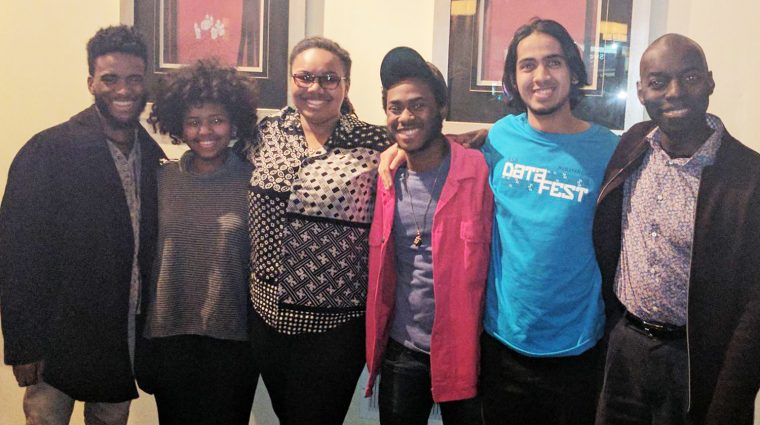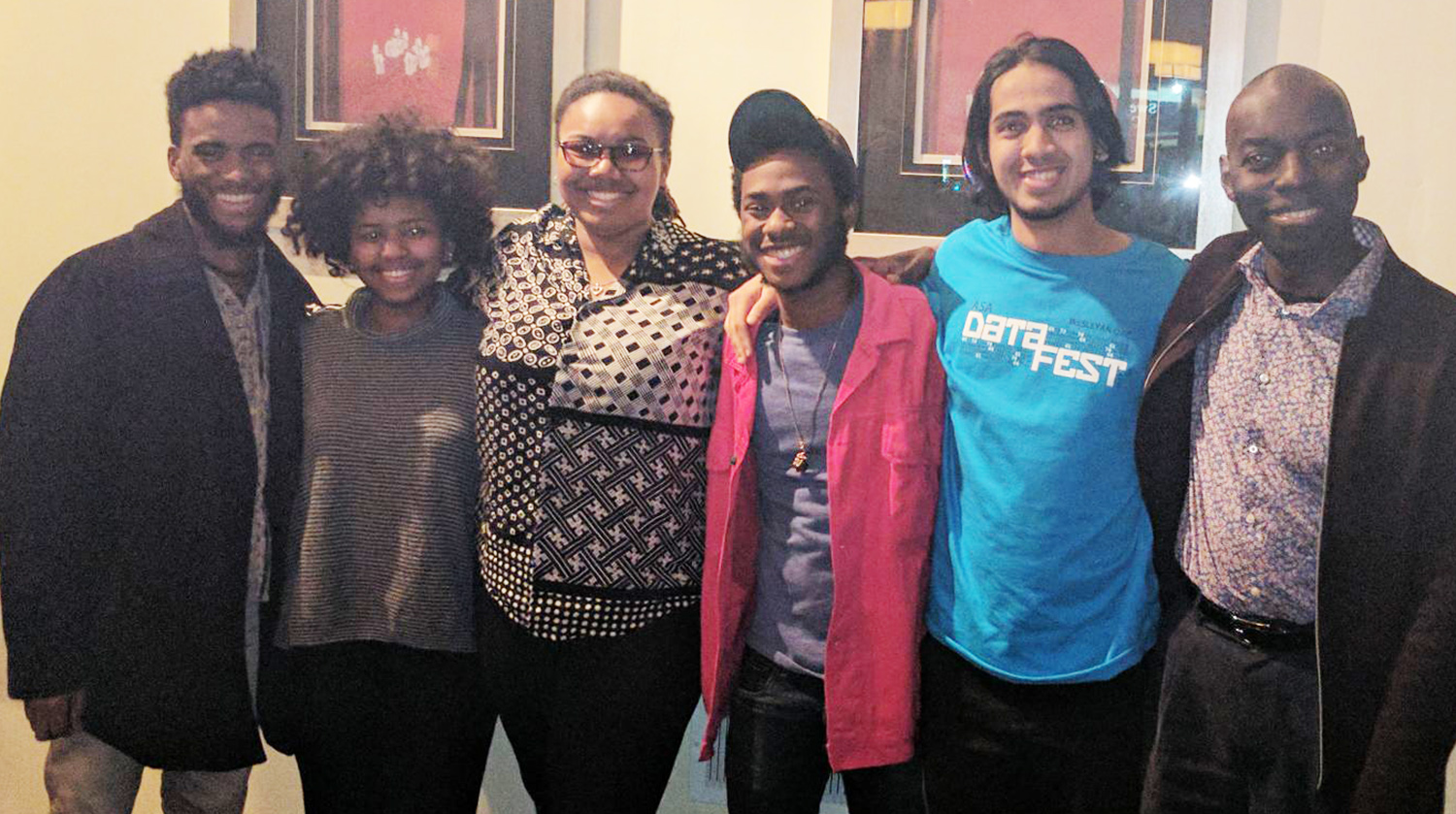6 Students Awarded Mellon Mays Undergraduate Fellowships


This spring, Wesleyan has awarded six Wesleyan students with a Mellon Mays Undergraduate Fellowship. The fellowship is the centerpiece of the Andrew Mellon Foundation’s initiatives to increase the presence of traditionally underrepresented groups in the faculty ranks of institutions of higher learning in the U.S.
Fellows participate in the program during the last two years of undergraduate study and receive a monthly stipend to offset work study requirements, modest research funds, and additional summer research funding as part of the fellowship. Upon successful completion of graduate study, Mellon Mays Fellows also receive up to $10,000 to assist in repayment of student loans.
The 2016-17 Mellon Mays fellows include Jumoke McDuffie-Thurmond ’19; Brianna Thurman ’19, Kaiyana Cervera ’19; Bisa McDuffie-Thurmond ’19, Azher Jaweed’19 and Brenda Quintana’18. Demetrius Eudell, professor of history, serves as faculty coordinator and Teshia Levy-Grant, dean for equity and inclusion, is staff coordinator. MMUF one of several high-performance signature programs in the Pathways to Inclusive Excellence (PIE), shepherded by the Office for Equity and Inclusion.
The students’ research summaries are below:
Jumoke McDuffie-Thurmond‘s research is inspired by conversations he had with his mother and it is informed by personal family history used as source material for answering the following questions: “What does it mean to exist in a space and a country that is defined by a legacy it refuses to earnestly acknowledge? How do I navigate the legacies of enslavement and violence that are rooted in the soil of my environment?” Through the analysis of both his European ancestors and their participation in the slave trade, the forced labor of his African ancestors, McDuffie-Thurmond will discover the impact that the two have on his life today.
He’s majoring in African American studies.
Brianna Thurman’s research is inspired by Amiri Baraka’s poetics on the impact of art in the Black community. She hopes to answer the following questions: What would the current racial climate of the country look like if music or other art forms were not accessible to youth? Does art contribute to the avoidance of violent rebellion? Why is it that black people have inclinations to create art and perform?
“Baraka’s view on black art has deeply influenced my desire to research the impact of music on African American youth in predominantly African American communities,” she said.
Kaiyana Cervera‘s research is informed by her personal experience as a Black woman, attending a predominantly white institution and her ultimate goal of becoming a professor. As a person who is passionate about Black women’s issues both in the Academy and the world, she hopes to further engage with Black woman faculty teaching at Wesleyan and other institutions to unpack their stories. Her research challenges the broken Black woman narrative, which reads Black women as cursory rather than integral to both the founding of this country and to understanding the intersectionality of their experiences and identities.
“I hope to shed light on people who have been silenced, hidden and disregarded as cursory to the success of this country, when if fact they, Black women, have been the foundation of it along side their Indigenous sisters and Latina sisters,” she said.
Cervera is majoring in African American studies and American studies.
Bisa McDuffie-Thurmond’s research is centered on extent to which the historical subjugation of black bodies is connected to the historical fluctuation in how sitting Presidents use their power. It is through that research that he hopes to uncover an answer to the question of the linkage between executive presidential power and civil right progress. In what ways and with what repercussions was the fluctuating use of executive power linked to this period of racial turmoil for Black Americans?
“The first is the history of Black Americans in the U.S. The second is the lives of the U.S. presidents. Both the history of Black Americans and the individual impact of the various Presidents, are inextricably linked to the history and development of the U.S. My research will hope to uncover the extent to which the historical subjugation o black bodies is connected to the historical fluctuation in how sitting presidents use their power,” he said.
McDuffie-Thurmond is majoring in African American studies and American studies.
Azher Jaweed’s research is focused primarily on the historical epistemology of the interactions with the economy, of the state and of society with natural resources. Through his historical analysis he will be able to share how societies organize and distribute resources in various economic systems. He hopes to share the story of human toil, achievement and folly which has left a mark on planet Earth.
“I am interested in the history of how humans have interacted with natural resources, as well as how societies organize and distribute resources in various forms of economic systems,” he said. “Understanding the crucial history of how humans have interacted with natural resources will allow me to share the story of human toil, achievement, and folly which has left a mark – for better and for worse – on planet Earth.”
Jaweed is majoring in history and is working on a certificate in quantitative data analysis.
Brenda Quintana’s research is informed by her experience as “a brown Latina woman who is a first generation, low- income college student at an elite liberal arts school and a first generation immigrant who grew up in conservative and religious Utah.” She is interested in studying the intersections between Latinidad and Mormon culture, specifically examining missionary work in Hispanic communities in the US and Latin America. This research works to deconstruct historical narratives within American history by applying indigenous, racial and ethnic study frameworks.
“Mormon history, although a rather niche subject area, is situated in America’s history of frontier expansion, settler colonialism, and imperialism, making it an interesting history and culture to examine within racial and indigenous contexts,” she said.
Quintana is majoring in American studies.

